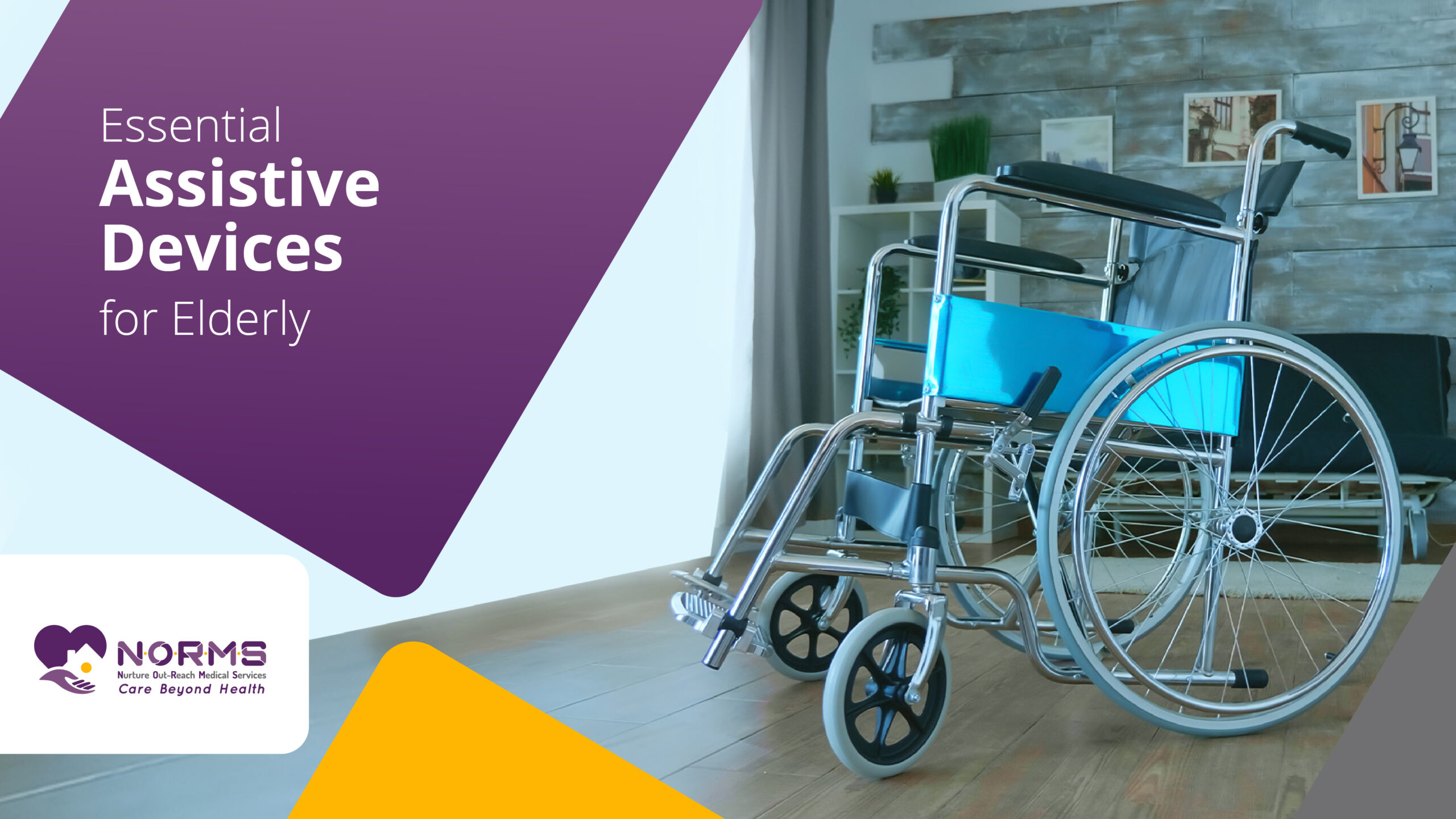
Assistive devices are essential for any elderly person, as we age, our needs as a person also increase and same goes for elderly people. Let us now get into the details of what essential devices are, why elders need them and the different types of essential devices.
Assistive devices are tools or products created to facilitate those with disabilities or congenital problems. They mean support and independence for an older generation.
These are technological tools designed primarily to preserve or enhance an individual’s capacity for independent living in order to promote engagement and improve general well-being.
Assistive products and technologies are defined by the International Classification of Functioning, Disability, and Health (ICF) as any device, instrument, equipment, or product that has been particularly made or modified to improve a person’s capacity to function who has a disability.
While we age, our mobility and our senses may weaken. These problems are solved by the use of assistive devices which facilitate safe movement and provide independence and reach a good quality of life.
Walking sticks are fundamental mobility tools for the elderly by providing stability and safety during walking. They exist in different styles like routine, quad, and offset handlebars and are designed with versatility in mind that has them serve different needs while being reliable in the walking assistance process.
This equipment is suitable to install in strategic areas such as bathrooms and corridors where a person may feel unstable. They support people while they are standing, or sitting to avoid slips and increase safety for individuals
Aid for the hard of hearing, hearing aids differ in their styles (such as in-the-ear and behind-the-ear models). These devices play an essential role in the improvement of the quality of life for seniors by tackling and minimising the problems of elderly hearing disorders.
Battery-operated scooters are definitely most useful for outdoor or outside moves, especially those with limited strength or endurance. These devices not only boost the independence of an elder , but also allow one to walk and move freely through various areas.
Providing seniors with a practical way out, raised toilet seats make the back muscles and joints more relaxed while being on the toilet. They raise a platform for supine sit and posture.
Manually or electric wheelchairs are central tools for those with limited mobility. They act as the means of independent movement that let the users travel both indoor and outdoor environments with no problem.
This device elongates an individual’s reach and hence enables him to hold high or low objects without much bending or extending. Reacher grabbers are a blessing as they make people autonomous in their day to day activities.
With closures designed specifically for easy fastening, adaptive clothing fits people with restricted dexterity. This kind of garment advocates for an aspect of ‘dressing independently’ that makes seniors be free to manage their wardrobe anywhere.
Stairs with a stair lift are crucial for elderly persons having mobility concerns. They (Stairs) assist in ascending and descending safely of the different levels of a residence, increasing accessibility.
Pill organiser simplifies the medications management; i.e. seniors can sort and organise medication for seven days. This is meant to be systematised and be administered appropriately medical prescriptions.
Automated pill dispensers are effective and helpful tools that enable patients to take their medications at precisely the right time they properly should. This system ensures that people who have chronic diseases are committed and that the errors remain limited.
Bed rails put on beds give support and anyone at risk of falling can be prevented from falling. They help the seniors with their bed transfers where the other party ensures that they get safely into the bed and when they get to the bed they make sure that the environment is secure and comfortable enough for sleep.
The shower chair will provide a stable seat that the bath bathers can safely use in the bathroom. The seniors can go in and take a bath without worrying about running into trouble due to the slippery floor, thus maintaining their hygiene routine on their own.
The wearing of a talking watch is intended for the people with visual incapacity who accordingly hear the time chronologically. This function will ensure that seniors will not have to rely on help from family members if they want to know the correct hour of the day.
Since these buttons are made to be fairly large, bigger button phones provide a solution to seniors who may have vision or dexterity issues to work with these. These kinds of phones remove the difficulty of dialling, enabling everyone to easily and conveniently make phone calls.
Necessary medical devices allow the elderly to live with confidence and calm. It is imperative that they are provided with the necessary tools and devices that can help them live such a life. Family members must ensure that they provide their elders with such care, after all they too once cared for us in a similar manner. Let’s give back to our elders as much as they gave us.
Let us instinctively understand their particular needs, mobility level and what type of gadgets to choose. Post deciding these factors, we can decide on the required assistive devices.
Some devices, such as earphones or mics can be covered. Talk with insurance companies about their coverage and strict qualifications. This will ensure that you don’t miss out on getting the care you need and deserve.
One can purchase them through various online websites, pharmacies and local shops.